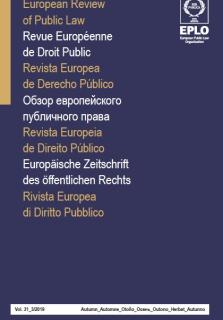
The Application of EU State Aid Law on International Tax Law
The Impact of Trade- and Competition Law on National Sovereignty in Fiscal Matters
Jean Monnet Professor at the JM Chair for Business- and Finance Law
at the Faculty of Economics of the University of Split
The objective of EU state aid law (Art. 107 TFEU) is to prevent member states from using public funds for the benefit of certain private enterprises. Although state aid law recognizes fiscal and economic sovereignty of member states by limiting itself to deviations from the national system, recent cases regarding tax schemes used by Apple, Google, Amazon or McDonald’s have shown that the line between the protection of the single market and the interference into states’ sovereign rights to shape their (fiscal) system is everything but clear. This paper goes beyond the scope of those cases as well as mere practical issues regarding the state aid status of rulings, tax treaties, international tax relief or hybrid mismatches. It aims to define the pillars of a state aid framework that offers a clear delineation between state sovereignty and single market protection on the example of (international) fiscal state aid.
L’objectif du droit communautaire des aides d’Etat (art. 107 TFUE) est d’empêcher les Etats membres d’utiliser les fonds publics au profit de certaines entreprises privées. Bien que la loi sur les aides d’Etat reconnaisse la souveraineté fiscale et économique des Etats membres en se limitant aux écarts par rapport au système national, des cas récents concernant les régimes fiscaux utilisés par Apple, Google, Amazon ou McDonald’s ont montré que la ligne de démarcation entre la protection du marché unique et l’ingérence dans les droits souverains des Etats à façonner leur système (fiscal) n’est pas claire. Le présent article va au-delà de la portée de ces affaires ainsi que des simples questions pratiques concernant le statut d’aide d’Etat des décisions, des traités fiscaux, des allégements fiscaux internationaux ou des disparités hybrides. Il vise à définir les piliers d’un cadre des aides d’Etat qui offre une délimitation claire entre la souveraineté de l’Etat et la protection du marché unique sur l’exemple des aides d’Etat fiscales (internationales).
* This article is based on the author's Thesis “The Impact of EU State Aid Law on International Tax Law”, which was awarded the Thesis Prize 2018 of the European Group of Public Law (EGPL).





















